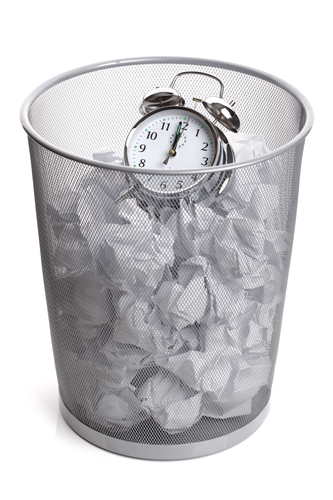Top 5 Time Wasters at Work & How to Avoid Them


 By Ashley Phillips, Director of Executive Recruitment, Ashton Tweed
By Ashley Phillips, Director of Executive Recruitment, Ashton Tweed
Small amounts of time are inevitably wasted during our workdays, but it’s good not to make a habit out of significant time-wasting behaviors. Working in the life sciences industry, time is always of the essence, especially if you are in a leadership role. But these days it’s so easy to let time slip away while perusing the web or checking social media. To stop these habits from dwindling away your workdays and decreasing your productivity, it is good to set up some personal guidelines. Below are five of the biggest time-wasting traps and ways I’ve learned to avoid them:
1. Online Distractions – Including Facebook, Twitter, your favorite news feed, and even LinkedIn. These are particularly difficult to avoid because many of us spend our workdays in front of the computer. So set aside a specific time in your day to read the news, shop online, check social media, etc. It’s true that these activities are a good way to wake up your mind for the day or unwind at the end of a workday, but it’s best to keep those sites off limits throughout your workday.
2. Social Interruptions – You can’t control when friends or coworkers want to get in touch with you, but do your best to keep your cell phone and personal email out of sight while working. If you’re working on a particularly strict deadline, try disabling any email notifications such as the pop-ups from Outlook while working. You can always re-enable them after you’ve met that deadline.
Additionally, if you work in an office, close your door when you begin your tasks for the day. Plan specific times to access your cell phone and open your door for friendly conversation, but do your best to keep these activities limited to those allotted times. We all know emergencies and unplanned urgencies come up, but being mindful of your productive work time vs. break time is one of the first steps in the process of good time management.
3. Procrastination – Dreading your next task? We’ve all been there. Everyone knows that feeling you get when you really need to get started on something, but just can’t find the motivation. When I find myself in these situations, I’ve learned that I do really need to give my brain a break in order to move on to the next thing. At these times I actually trick myself into thinking I’m taking a break, when in reality I am “procrastinating” by doing something productive such as checking email or returning a quick call.
When you find yourself in this same spot where your brain just needs a mental break, use the downtime to do a mindless task on your list. This way you get to indulge in ”procrastination” without actually taking time away from your work. The trick here is to put a time limit on yourself to avoid getting carried away. Most of us could spend an entire day responding to emails or making phone calls, but if you only allow yourself 15 minutes to tackle 5 emails or 2 calls for example, you might just have the brain boost you need to go back and address that next challenging task.
4. Unproductive Brainstorming – If you or your team has set aside time to brainstorm ideas for a project, make sure that the ideas are flowing. If you lack inspiration or are finding it difficult to move forward, don’t waste more time by trying to force it! Creativity doesn’t work that way. If after 20 minutes there hasn’t been any progress, resume your other work and reconvene when someone has something new to offer. Coming back to it with a fresh mind might just be the solution that was needed.
5. Breaks – It actually helps your productivity to take small breaks throughout the day. However, a study from the University of California Irvine found that it takes an average of 23 minutes and 15 seconds to get back to a task after an interruption (Lifehacker). That’s a long time! So choose and time your breaks wisely, or something that was meant to be a good thing could very quickly turn into a lot of wasted time. Whether it’s to eat, go to the restroom, or simply to clear your mind, think ahead about how you can make the most of these breaks.
If the weather allows, take a 10-minute break to go outside and, if possible, bring your phone with you to respond to a few emails. You’ll be getting fresh air and staying somewhat productive, all while also taking a mental break from the more demanding tasks of your day.
The first step to avoiding wasted time at work is to be aware of the fact that it happens. It never feels good to know you’ve misused a chunk of your work day which now needs to be made up somewhere down the line. In the fast-paced life sciences industry where it’s easy to fall behind, don’t fall victim to any of the behaviors above! Take control and be mindful of your time in order to be productive when you need to be.
Looking for team members that know the value of your company’s time? Contact Ashton Tweed to discuss your needs today!
Share your insights! Contact jamesrudman@ashtontweed.com to contribute your life sciences article as a guest writer.





